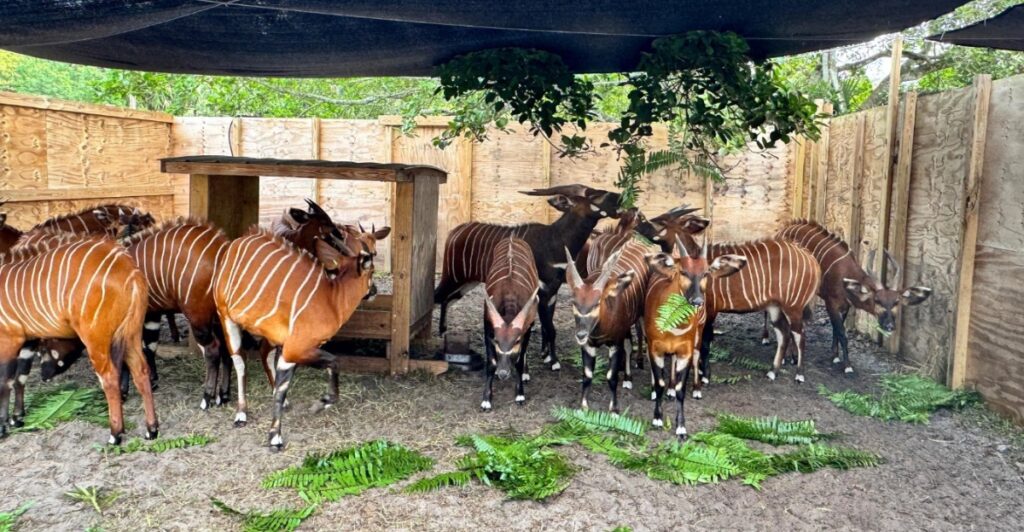
In a landmark conservation initiative, 17 critically endangered mountain bongos were airlifted from Florida to Kenya in February 2025. This transcontinental journey, spanning over 7,100 nautical miles, was orchestrated by a coalition including DHL Express, the Rare Species Conservatory Foundation (RSCF), and Tusk Trust.
The bongos, comprising 12 females and five males, were transported in custom-built crates, accompanied by six tonnes of feed and a team of specialists to ensure their well-being during the flight. Upon arrival, they were relocated to a specially prepared sanctuary in Meru County, Kenya, marking a significant step in efforts to restore the species to its native habitat.
Understanding the Mountain Bongo
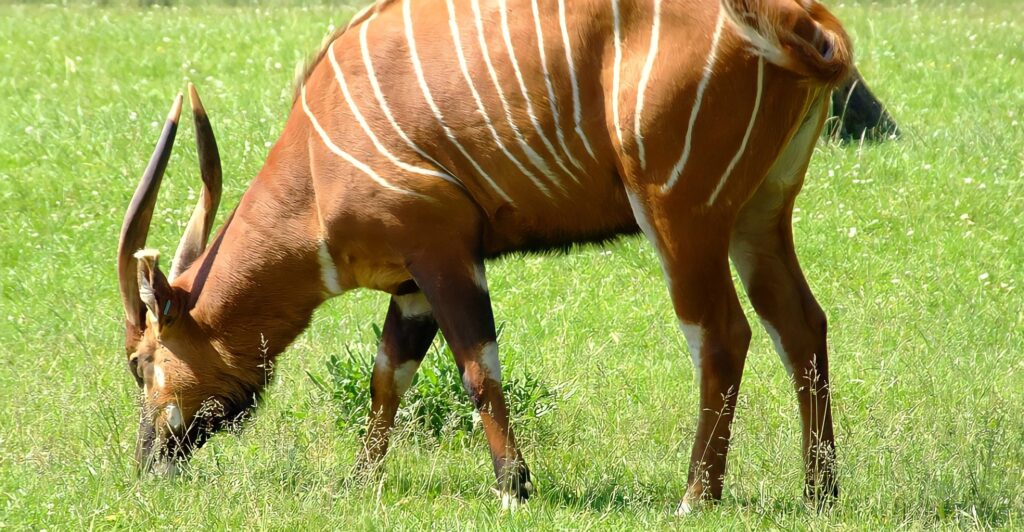
The mountain bongo (Tragelaphus eurycerus Isaac) is a subspecies of the bongo antelope, distinguished by its striking chestnut coat with white stripes and long, spiraled horns. Native to Kenya’s montane forests, this elusive herbivore thrives in dense, high-altitude woodlands.
Once abundant, their numbers have plummeted due to poaching, habitat loss, and disease, rendering them critically endangered, with fewer than 100 individuals remaining in the wild. Conservation efforts are now focused on habitat restoration and reintroduction programs to prevent their extinction.
The Role of the Rare Species Conservatory Foundation
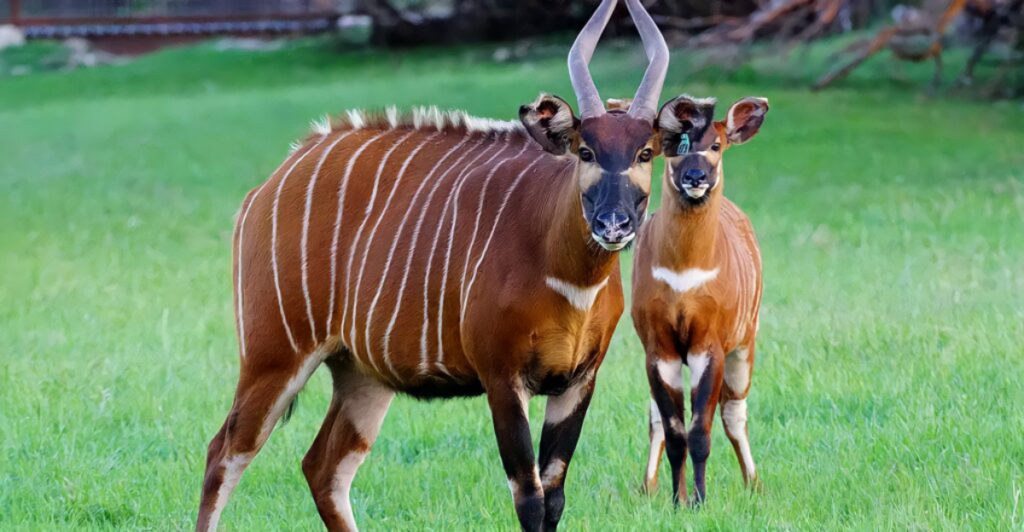
The RSCF, based in Florida, has been instrumental in breeding and conserving endangered species, including the mountain bongo. Since the 1990s, the foundation has maintained a captive breeding program aimed at preserving genetic diversity and preparing individuals for eventual reintroduction into the wild.
The recent translocation of 17 bongos to Kenya represents the culmination of decades of dedicated conservation work.
DHL Express’s Logistical Feat
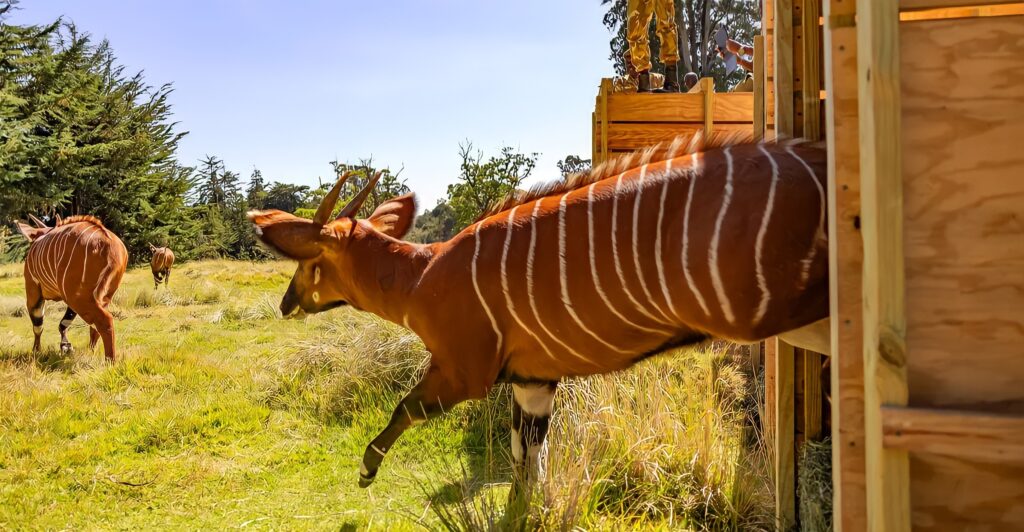
Transporting large, sensitive animals across continents poses significant logistical challenges. DHL Express provided a dedicated aircraft for the bongos’ journey, ensuring minimal stress and maximum safety.
The flight included a technical stopover in Madrid before arriving in Nairobi, Kenya. Custom-built crates, climate control, and constant monitoring were employed to safeguard the animals’ health throughout the trip.
Arrival and Acclimatization in Kenya
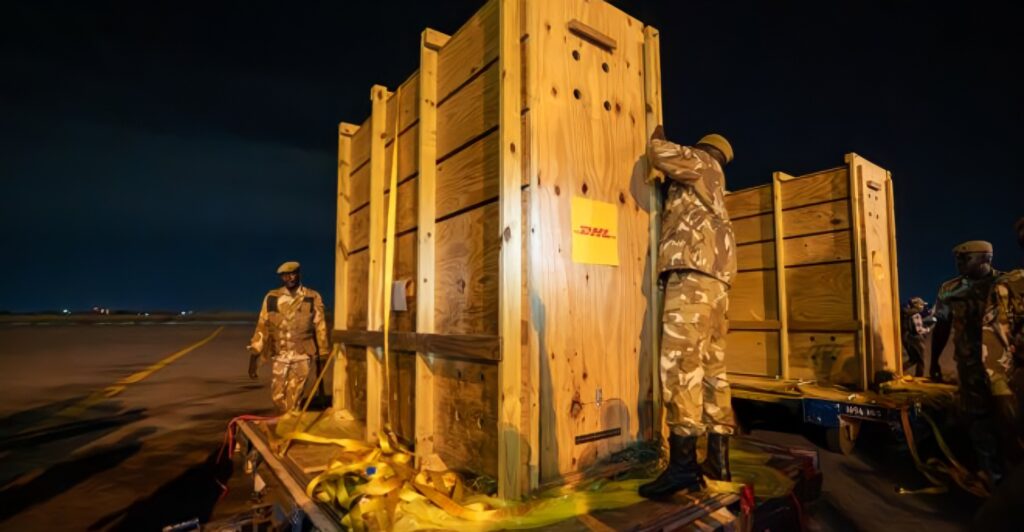
Upon landing at Jomo Kenyatta International Airport, the bongos were transported to a 25-acre sanctuary in Buuri Sub County, Meru County.
This facility, managed by the Meru Bongo and Rhino Conservation Trust, provides a secure environment for the bongos to acclimate to their native habitat. The sanctuary includes holding paddocks and has resources to monitor and support the animals during their transition.
Community Involvement and Conservation
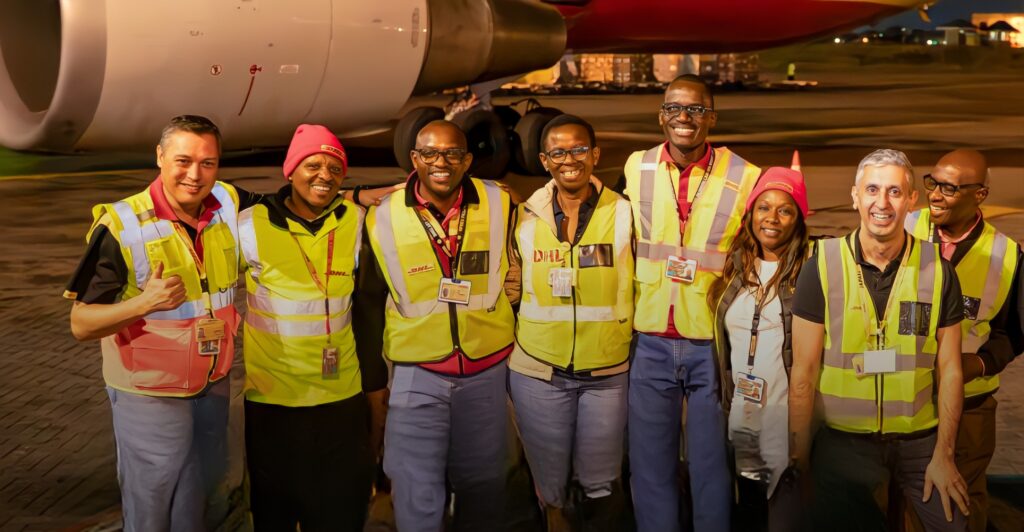
Local communities play a vital role in the success of conservation efforts. In Meru County, residents have been planning and implementing the bongo sanctuary.
Educational programs and employment opportunities related to the refuge aim to foster a sense of ownership and stewardship among the local population, ensuring long-term support for the bongos’ protection.
The National Recovery and Action Plan
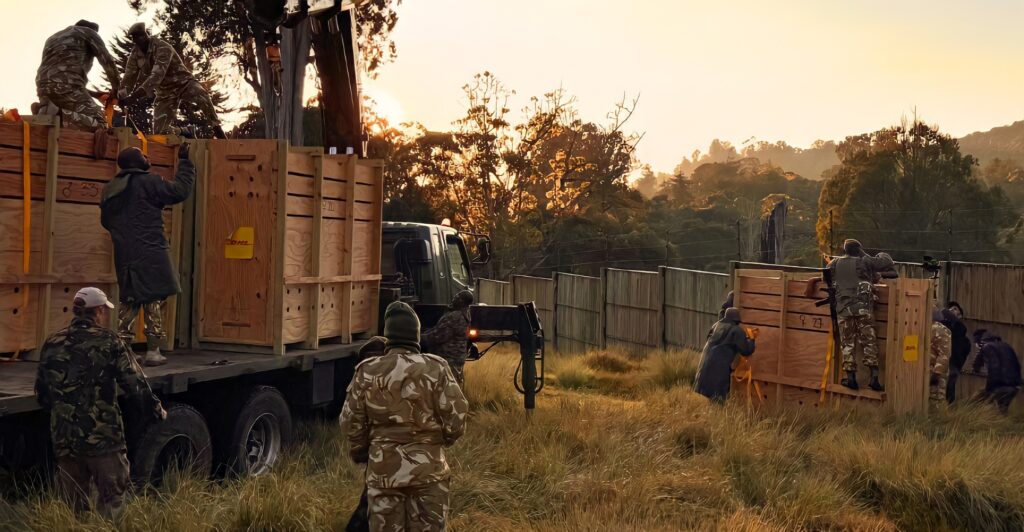
Kenya’s National Recovery and Action Plan for the Mountain Bongo outlines strategies to increase the wild population to 750 individuals over the next 50 years. This plan encompasses habitat restoration, anti-poaching measures, and continued breeding programs.
The recent reintroduction of bongos from Florida is a significant milestone within this comprehensive conservation framework.
Challenges Facing the Mountain Bongo
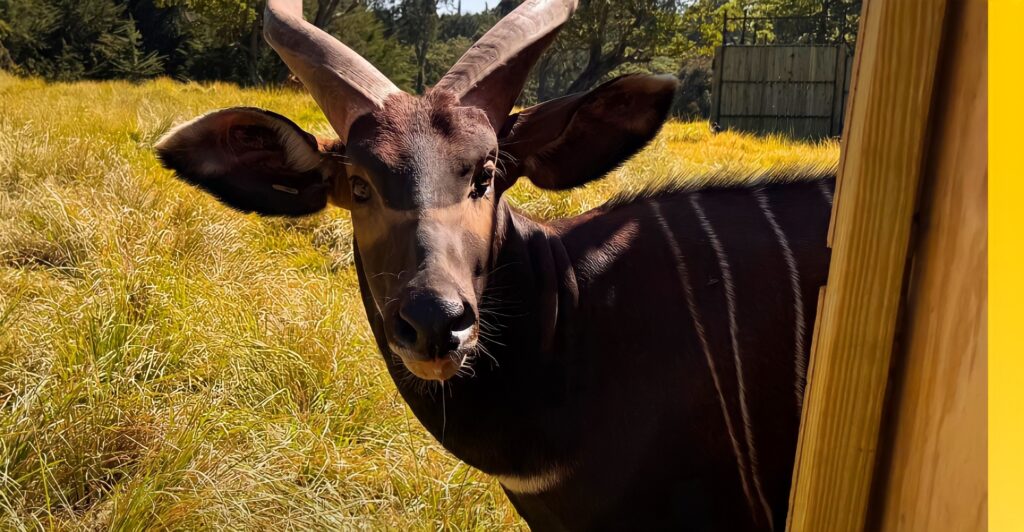
Despite concerted conservation efforts, mountain bongos face ongoing threats. Habitat fragmentation due to agricultural expansion, illegal hunting, and disease impedes population recovery.
Climate change also poses a long-term risk by altering the ecosystems that bongos depend on. Addressing these challenges requires sustained international collaboration and adaptive management strategies.
The Importance of Genetic Diversity
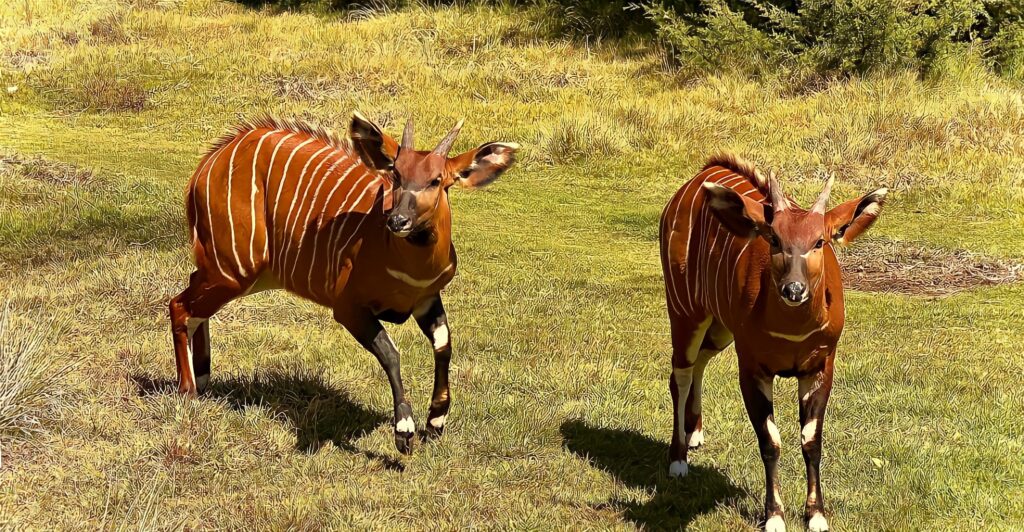
Maintaining genetic diversity within the bongo population is crucial for the species’ resilience and adaptability. The Florida-bred bongos contribute valuable genetic material to the Kenyan population, enhancing its overall health and viability.
Ongoing monitoring and potential future introductions will help preserve this diversity, which is essential for the species’ long-term survival.
A Model for Future Conservation Efforts

The successful translocation of mountain bongos from Florida to Kenya is a worldwide model for similar conservation initiatives. It demonstrates the effectiveness of international partnerships, the importance of community involvement, and the feasibility of reintroducing captive-bred animals into the wild.
As global biodiversity faces increasing threats, such collaborative efforts offer hope for preserving endangered species.
Explore more of our trending stories and hit Follow to keep them coming to your feed!

Don’t miss out on more stories like this! Hit the Follow button at the top of this article to stay updated with the latest news. Share your thoughts in the comments—we’d love to hear from you!







